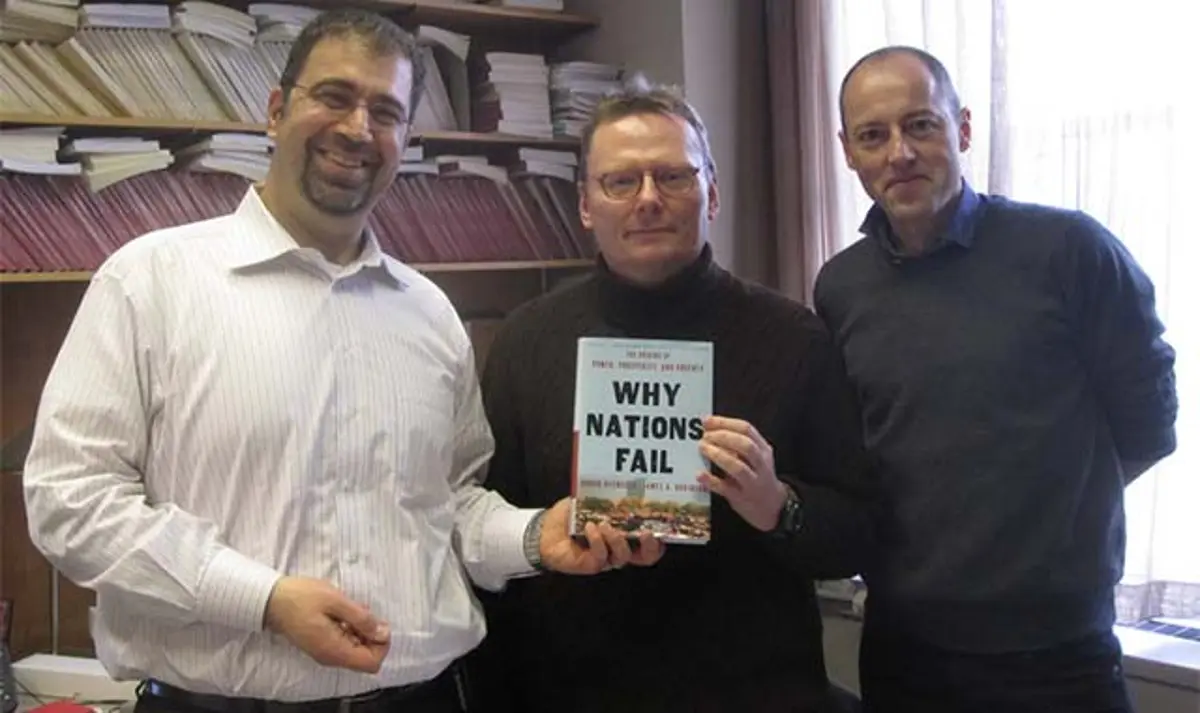
In October 2024, American and Turkish economist Daron Acemoglu, along with his collaborators Simon Johnson and James A. Robinson, was awarded the Nobel Prize in economics.
Their pioneering research on how institutions influence national prosperity earned them this prestigious recognition.
Acemoglu’s work has reshaped the way economists and policymakers understand economic development, particularly in showing how inclusive institutions can drive prosperity while extractive ones can hinder growth.
But who is Acemoglu, and how did his career lead to one of the highest honors in the field of economics?

Daron Acemoglu was born on September 3, 1967, in Istanbul, Türkiye, into an Armenian family. His father, Kevork Acemoglu, was a prominent commercial lawyer and his mother, Irma, was the principal of an Armenian school.
His doctoral thesis, Essays in Microfoundations of Macroeconomics: Contracts and Economic Performance, received remarkable praise from his examiners.

In 1993, Acemoglu joined the Massachusetts Institute of Technology (MIT), where he quickly rose through the ranks.
He became a full professor in 2000, and in 2019, he was honored with the title of "Institute Professor," the highest distinction MIT awards to its faculty. Throughout his career, Acemoglu’s research has spanned multiple fields, including political economy, economic growth, income inequality and labor economics.
Acemoglu’s contributions to understanding how political and economic institutions influence the prosperity of nations have earned him recognition as one of the most influential economists of his time.
He has been particularly interested in how institutional frameworks – whether inclusive or extractive – can drive economic outcomes, especially in developing nations.

Acemoglu is well-known for his collaboration with political scientist James A. Robinson.
They co-authored Economic Origins of Dictatorship and Democracy (2006), a book that analyzes how political institutions shape whether a country moves towards democracy or authoritarianism.
Their next collaboration, Why Nations Fail: The Origins of Power, Prosperity, and Poverty (2012), brought their work into the global spotlight.
Why Nations Fail has been translated into several languages and remains influential in both academic and policy circles.

Acemoglu’s research has not only reshaped academic discussions, but has also had direct implications for global policy. His work on democracy and economic growth, labor markets, and institutional reforms has been widely cited by governments and international organizations, influencing a variety of policy decisions:

Acemoglu’s pioneering work has been recognized with numerous awards throughout his career. In 2005, he received the John Bates Clark Medal, which is given to an economist under the age of 40 for outstanding contributions to the field. This award is often considered a precursor to the Nobel Prize.
In 2024, Acemoglu, along with Simon Johnson and James A. Robinson, was awarded the Nobel Prize in economics for their research on how institutions are formed and how they affect prosperity.
The Nobel Committee praised their work for explaining why nations with inclusive institutions prosper, while those with extractive institutions remain trapped in cycles of poverty and low economic growth.
Their research on how colonialism shaped the institutional structures of many countries also provided valuable insights into why some nations are more successful than others.

Acemoglu is married to Asuman Ozdaglar, a professor of electrical engineering at MIT, and they have two sons, Arda and Aras.
His influence extends far beyond academia; his research has shaped policy discussions worldwide on the importance of institutions in economic development.
Policymakers, international organizations, and economists frequently reference his work when tackling challenges related to inequality, development and institutional reform.